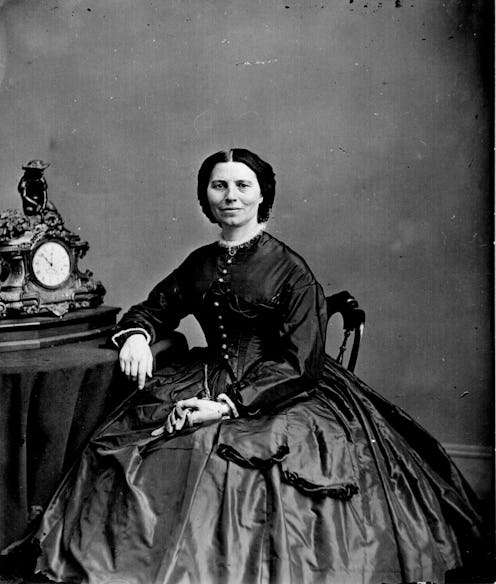Life
How Women Have Changed Healthcare In History
If you've ever had a blood transfusion, organ transplant, or received disaster relief, you have a woman to thank for the fact that you're reading this right now. Throughout history, women have changed healthcare for the better in countless ways — although given history's tendency to write them off, you might not realize it. The hurdles facing women in science, technology, and medicine today aren't anything new. For hundreds, if not thousands, of years, they've been shunted aside or forced to watch their work credited to a man.
Unfortunately, these are still things that happen in the modern day. You've probably heard of Hidden Figures, the movie recounting the story of three black mathematicians who helped launch astronaut John Glenn into space in the early 1960s. The sad part is that their contributions were ignored for decades, and they're far from the only women scientists to receive credit long after the fact — ever heard of Vera Rubin or Cecelia Payne?
The good news is that thanks to the Internet, information about female scientists is just a quick Google search away. So next time you're ill, think about the following six ways women have changed medicine throughout history.
1Women Creating Midwifery
Although women have traditionally been excluded from upper-level medical professions such as surgery, women have dominated the field of childbirth for thousands of years. During the Neolithic period, older women began fulfilling the role that became known as the midwife, and it became a respected profession within ancient societies. They may have been heavily discouraged or outright barred from practicing medicine in other areas, but midwifery was one of the few avenues open to women for thousands of years. Given its focus on women's health, it's basically the definition of ladies supporting ladies. (Men can technically be midwives, but it's a heavily female-dominated profession even today.)
Midwives were typically present at most births in the United States until the turn of the 20th century, when doctors began replacing these women as part of a shift toward a pathological model of childbirth. Today, however, midwives are making a comeback, and research indicates that they're integral in improving health for vulnerable populations.
2A Woman Published The First Medical Encyclopedia
The first alphabetical medical encyclopedia is notable for a few reasons. First, its format made it far easier for readers to locate information. Second, it was written by a Greek physician named Metrodora living in the fifth century C.E., who refused to follow the traditional path of women in medicine at the time. Her text, On the Diseases and Cures of Women, covers a wide variety of medical topics, with one significant exception: obstetrics. In other words, she focuses on everything but childbirth and pregnancy — an unusual choice considering her female contemporaries were usually midwives.
3Clara Barton Founded The American Red Cross
Clara Barton was working as a recording clerk in Washington, D.C., when the Civil War began. During the ensuing chaos, she began providing wounded soldiers with food, supplies, and clothing — first as an individual, then as an official volunteer for the Union government. Following the Civil War, she worked with the International Red Cross in Europe during the Franco-Prussian war. When she returned to the United States, she established an American chapter of the organization, which still provides disaster relief today.
4Rosalind Franklin Helped Discover The DNA Helix
Born in 1920, Rosalind Franklin received her PhD in chemistry from Cambridge University, after which she began working with X-ray diffraction. Her pioneering X-ray photography provided critical evidence in the identification of DNA's structure, and in the early '50s, she came close to solving it herself. However, James Watson and Francis Crick beat her to publication... after one of her colleagues showed Watson one of Franklin's DNA photographs.
Credit for the discovery of DNA's structure will probably remain controversial, but it's clear that without Franklin's contributions, the discovery of DNA's structure may have taken far longer.
5Gertrude B. Elion Fought Leukemia
One of the recipients of the 1988 Nobel Prize in Medicine, Gertrude Belle Elion was an American chemist who developed drugs for a huge variety of medical conditions: herpes, malaria, AIDS, gout, and more. Perhaps her most notable contributions, however, were the creation of drugs to fight leukemia and prevent the rejection of organ transplants.
6Rosalyn Sussman Yalow Created A Screening Technique Essential For Blood Banks
Nuclear physicist Rosalyn Sussman Yalow was awarded the Nobel Prize in Medicine in 1977, and for good reason. Together with Dr. Solomon Berson, Yalow developed a screening technique called radioimmunoassay (RIA), which can measure tiny amounts of substances like hormones and drugs in the body. One of the most important uses is in blood banks; RIA allows them to screen donations for diseases. So if you've ever had a blood transfusion, you have Yalow to thank for receiving disease-free blood.
